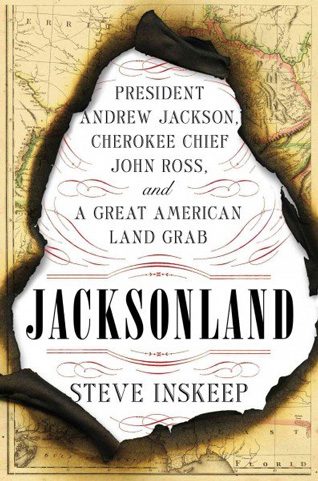 Cherokee Chief John Ross is one of the most well-known figures in American Indian history. It was during his tenure as leader of the Cherokee Nation that American Indians were forced from their homelands to settle in what is now present-day Oklahoma and the American West.
Cherokee Chief John Ross is one of the most well-known figures in American Indian history. It was during his tenure as leader of the Cherokee Nation that American Indians were forced from their homelands to settle in what is now present-day Oklahoma and the American West.
Steve Inskeep, the co-host of NPR’s Morning Edition, has written a book titled Jacksonland: President Andrew Jackson, Cherokee Chief John Ross, and a Great American Land Grab, which explores the seventh president’s role in the Trail of Tears, and how Ross fought against the president for more than two decades to preserve Cherokee land.
“This, to me, was one of the great undiscovered stories,” Inskeep said in a recent interview on Morning Edition. “The truth is that [Ross] and the rest of the Cherokees managed to hold out against pressure to give up their lands, using … the tools of an emerging democracy. They started their own newspaper – no Indian nation had ever done that before. There was Cherokee in the newspaper, there were also English articles in the newspaper, and they used it as a political tool, because the articles would effectively go viral, they’d be reprinted in other newspapers and spread across the United States, and get the Cherokee viewpoints out.”
It was a battle that the Cherokees and other tribes ultimately lost. The Indian Removal Act, passed in 1830, was eventually used to force tribes from their lands and into the West. Ross and his tribe settled in what is now northeast Oklahoma, with tribal headquarters in Tahlequah.

























